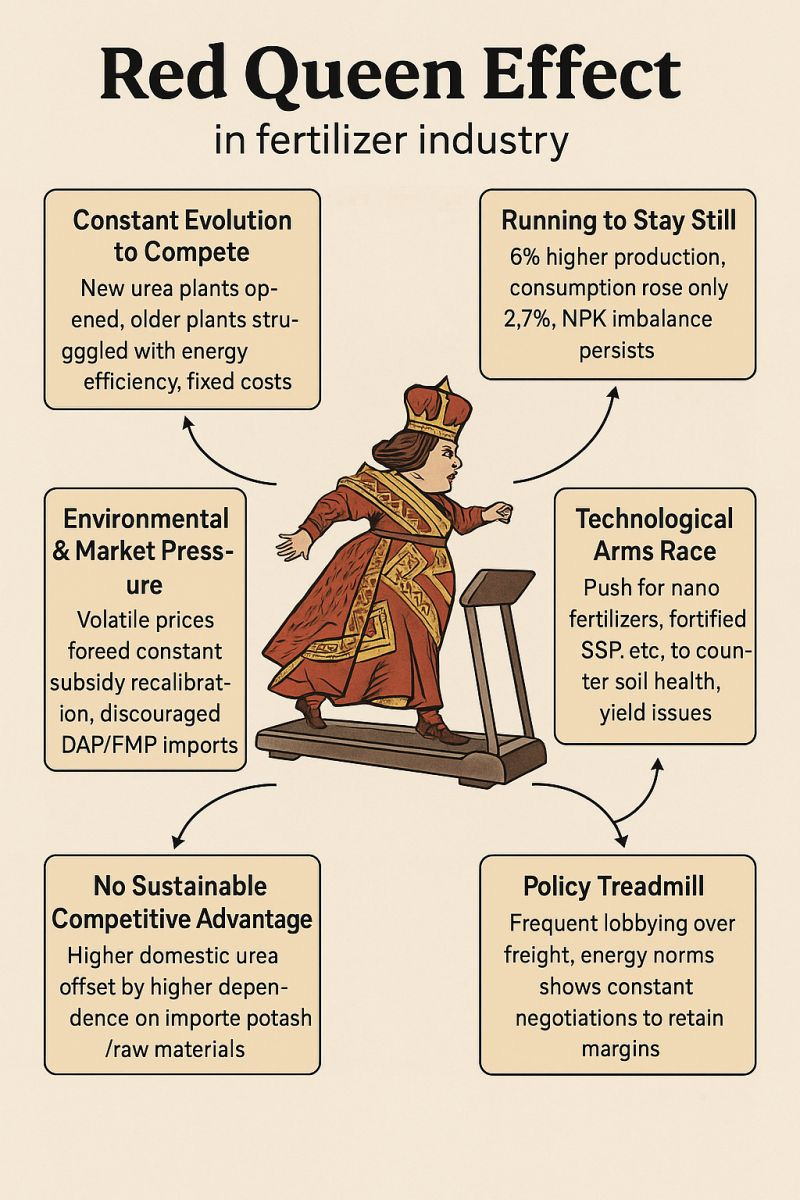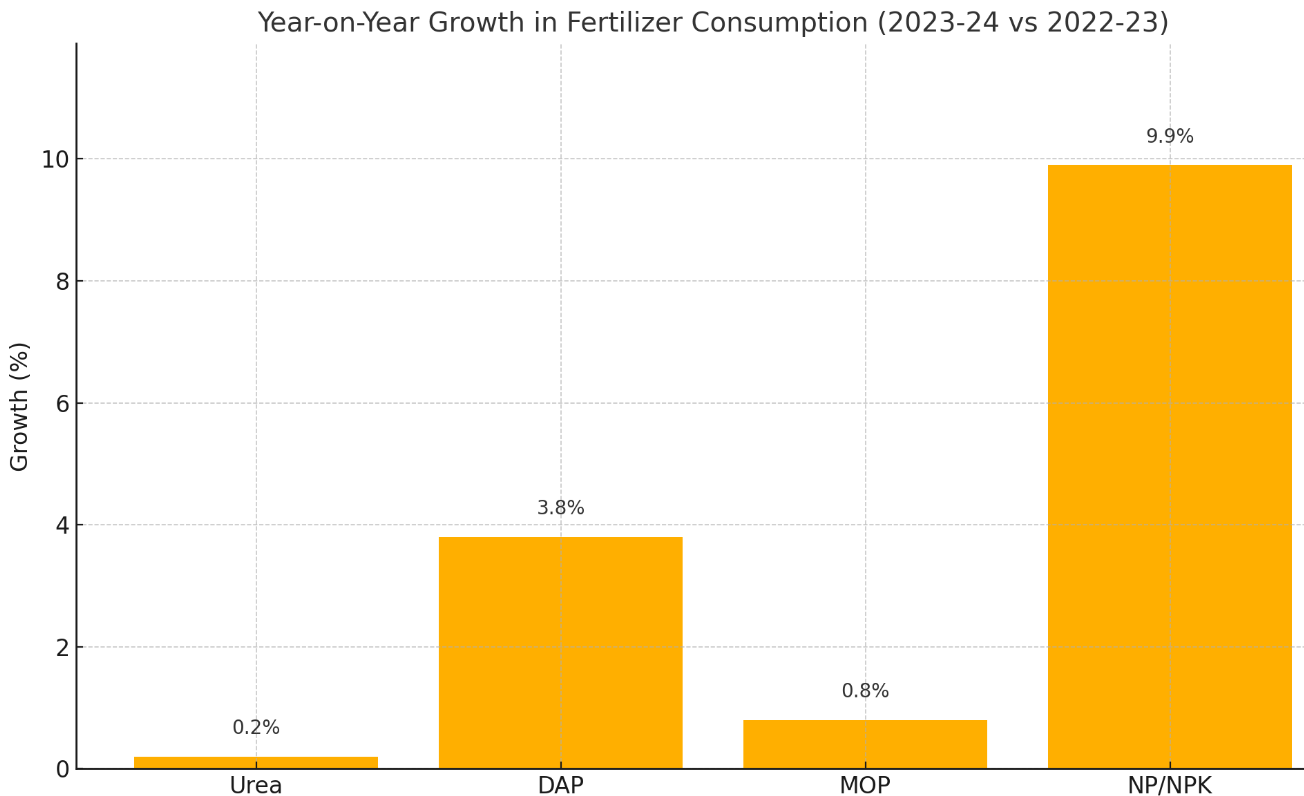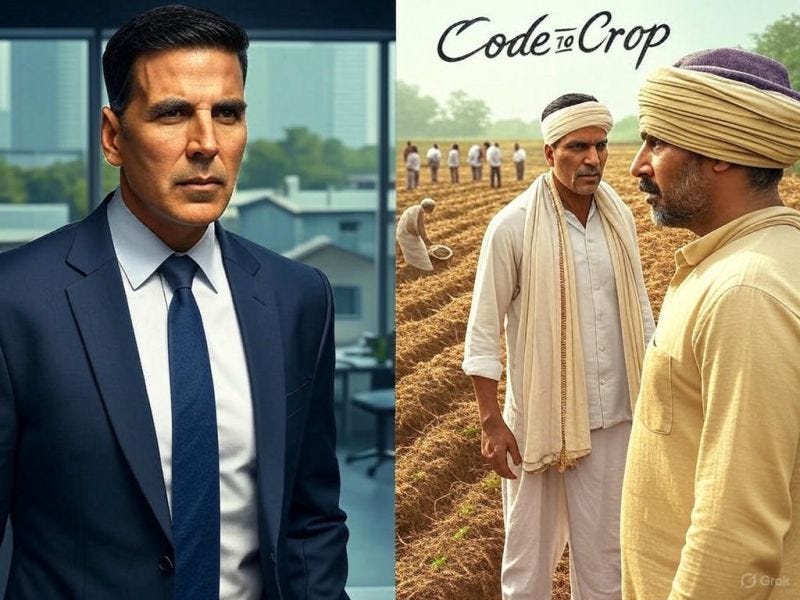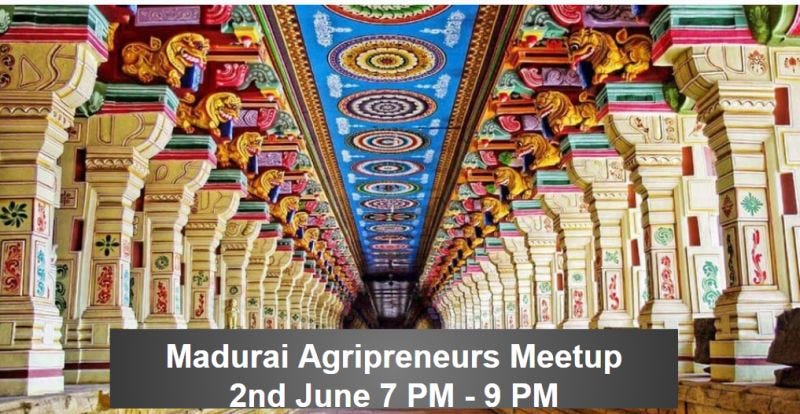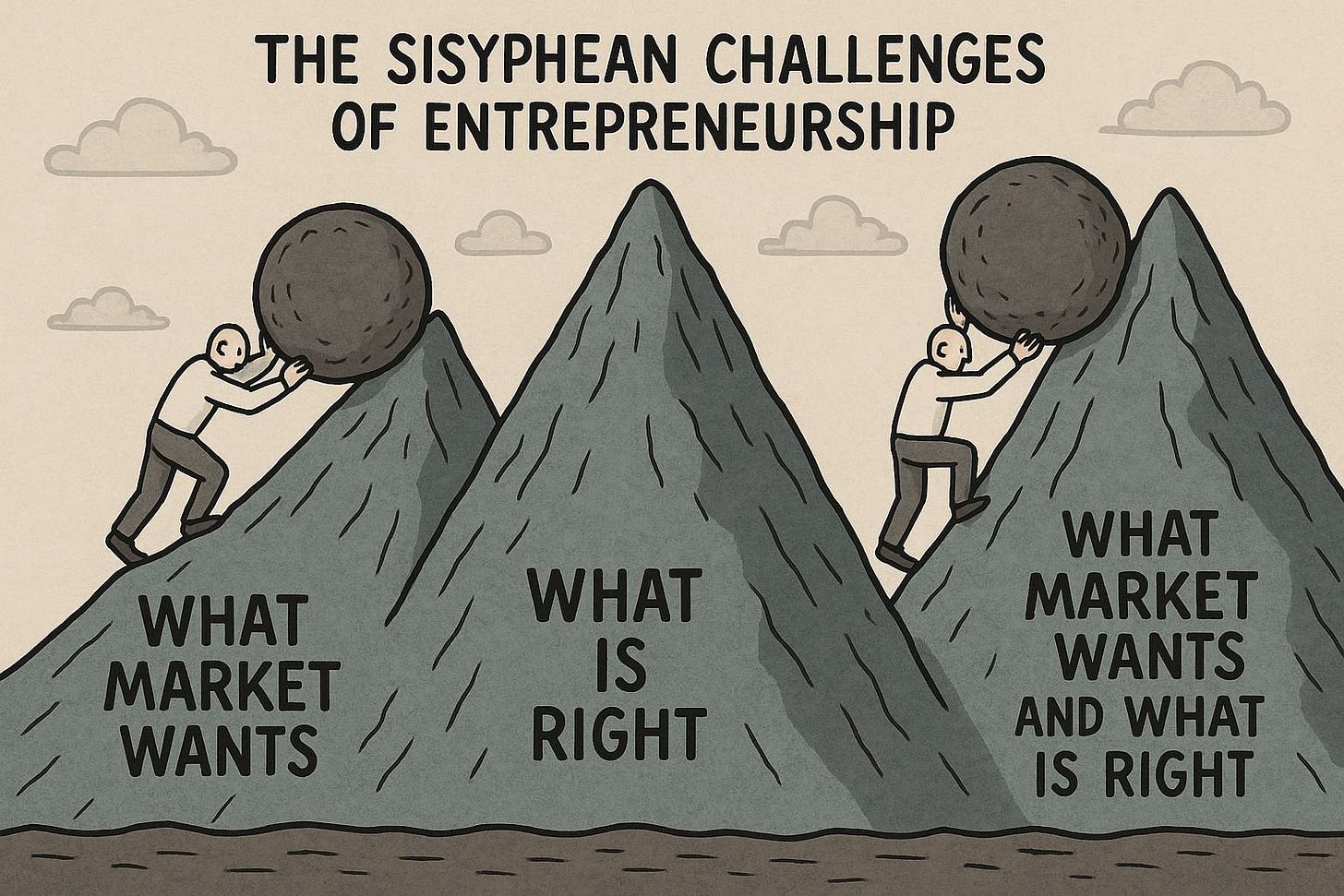
Dear Friends,
My name is Venky. Greetings from Hyderabad, India. Welcome to Sunday Reflections where I reflect on what I’ve written and ask myself, In doing what I am doing, what am I really doing?
Subscriber-Only Post Plugins
India’s First Genome-Edited Rice
Although every explainer surrounding the Genome-Edited Rice have underlined the fact that they are not GM Crops, the regulatory process to approve the genome-edited rice followed the similar playbook that was followed earlier with the launch of GM Mustard in India.
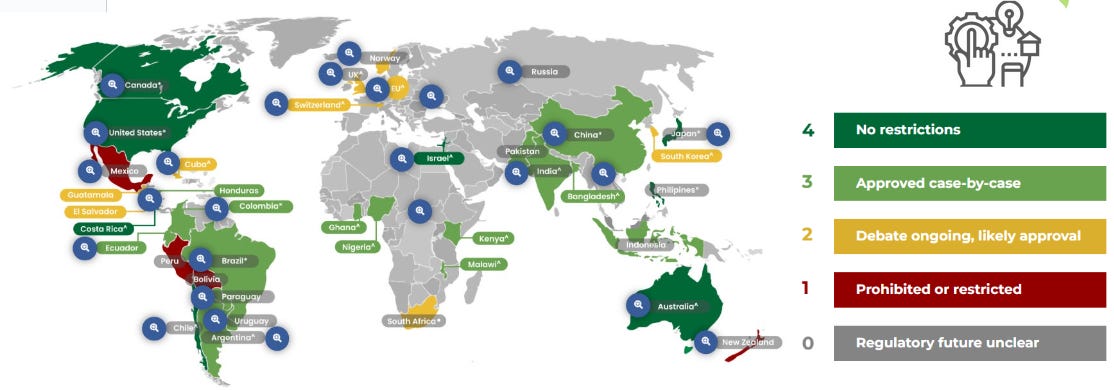
Given that there are no practically feasible ways to regulate new technological innovations in large smallholding countries like India, technology is carefully chosen/modified by pioneering innovators ‘to overcome regulatory delays’ (SDN1/SDN2), which further increases concerns about agronomic/biosafety performance, which further precipitates changes in regulation to avoid similar challenges in the future, and by the time regulators catch up to plug the hole, technological innovation has already gone much further ahead.
How do we understand the potential and the evolutionary tradeoffs surrounding genome editing? Evolutionary Tradeoffs is the key word to pay attention to here for there is no free lunch in Darwinian Natural selection process. No trait is free of cost in Nature’s balance sheet.
More on evolutionary tradeoffs of India’s First Genome-Edited Rice in a subscriber-only edition of Agribusiness Matters
The Future of Fertilizers
The Red Queen Effect from evolutionary biology beautifully illustrates the competitive struggles required to maintain one’s position — "It takes all the running you can do to stay in the same place." It beautifully mirrors the current predicament I see with the recent developments in the Indian fertilizer sector.
For a long time, the sector has been trying to ‘wean off farmers’ from using Urea, DAP and Potash for minimizing import dependence and ameliorating the risks of overfertilization which becomes zero-sum game for both the plants and the ecology.
Can you imagine any other sector where the industry leaders are trying darnedest to wean their customers’ addiction towards their flagship product for several years?
From 1961 to 2020, India's total NPK consumption grew from 0.25 million tonnes to 24.31 million tonnes, with nitrogen accounting for 77% of this usage. No wonder NPK imbalance is still a persistent problem: All-India NPK use ratio changed from 11.8:4.6:1 during 2022-23 to 10.9:4.4:1 during 2023-24
Gazing at the Future of Fertilizers in in a recent subscriber-only edition of Agribusiness Matters
Indian Hydrological Futures
The central challenge in the role of water in Indian Agriculture is this: High water demands occur in water scarce but agriculturally prosperous regions and low water demands occur in naturally water-abundant but agriculturally backward regions.
Borichivari Village in the western Indian state of Maharashtra recently came under the media spotlight for a severe water crisis, forcing women to risk their lives climbing into wells for water.
While Jal Jeevan Mission numbers look optimistic on paper (JJM dashboard talks of 89.76% of Maharashtra households with tap water supply enabled), reality often tells a different story.
1) When can we expect accountability in water reservations for industries vis a vis human consumption? Why are village councils not empowered to take ownership?
2) When can we expect to see judicious investment in surface water projects that encourage direct irrigation and replenishment of over exploited aquifers?
3) When can we expect pro rata pricing of electricity in the farm sector?
4) When can we expect volumetric pricing of water from public irrigation systems?
Maharashtra of the nineties created movements that transformed how rural India looked at water usage. check dams, community wells and farm ponds were the essential mantras that were driven through powerful grassroots movements. Today, as Ravindra Botve recently put it poignantly, they are quietly forgotten.
Can the Indian state of Maharashtra redeem herself from this mess?
Steal This Idea: Bollywood Movie on Indian Agripreneurship
Dear Bollywood script-writers,
If you ever find yourself out of ideas, consider making a mass-appealing agricultural “social message” entertainer movie with Akshay Kumar. Here is a rough story outline
Akshay Kumar is fired from his IT job thanks to AI. He decides to - switch from "Code to crop"- to move to his native village to pursue his dream occupation of farming.
As he fumbles and bumbles his way through, he finds himself ridiculed and bullied by his evil “sahukar” (middle man) father-in-law who dismisses this urban bloke out of touch with the ground realities of farming.
During the interval time block, Akshay Kumar meets smallholder farmers and wakes up to the painful realities of farming.
Seeing farm incomes depleted at the hands of several middlemen in the food supply chain, Akshay Kumar decides to start an agritech startup, and over the course of a rah-rah rousing song towards the climax, he pivots multiple times and changes the face of Indian Agriculture through the magical intervention of tech and data.
If anyone reading this is feeling excited to pitch this storyline to Akshay Kumar or any other Bollywood producer, do consider hiring me as a script consultant. I have more ideas:)
P.S1: I stole this lovely phrase "Code to Crop" from Organic Mandya Founder CEO Madhu Chandan SC.
P.S.2: Jokes Apart, Considering the layoffs happening at places like Microsoft, now is a great time to switch from Code to Crop. There are enough playbooks (including Organic Mandya's) out there. I teach a course called "Global Agritech 101" precisely for this “code” audience who want to make the switch to “crop”.
Three Sisyphean Mountains of Agripreneurship
Every agritech entrepreneur in their entrepreneurial journey climbs many mountains. Three of which are very important.
The First one could be called "What is Right".
Passion drives the journey that unfolds in this mountain. Most agritech entrepreneurs at their early stages, start at this mountain. Most business models are filled with idealism in this mountain.
When entrepreneurs discover the limitedness of climbing "What is Right" without a clear pathway to profitability, they start climbing the mountain called "What Market Wants".
This is the rite of passage for many entrepreneurs who discover the grit needed to play the entrepreneurial game. This is where teens become adults.
There is a challenge though.
Most entrepreneurs get stuck in this mountain for decades and continue to play entrepreneurial games only inside this mountain. They get so conditioned by what happens in this mountain that they think the entire universe lives in this mountain.
Very few, minority of minority seek out the third mountain: "What is Right and What Market Wants".
This is the mountain where purpose and meaning meets success as defined by the world outside. It takes a search of a different kind to discover the third mountain in the first place and set out for a pilgrimage to climb the third mountain.
It is a pilgrimage, for the third is the most sacred of all the mountains.
Which mountain are you climbing?
Post Script: I received some powerful reflections from Agripreneurs. Here is one from Biswajit
“My journey would have definitely taken the same trajectory, had ArthAgri been my first venture. I started with What Market Wants in my first venture. Failure in that was more spectacular than the initial traction we got .
When I started ArthAgri, I started with What is Right . I thought and I still believe deeply in the opportunity of digitization at the grassroot level. But I also understand that their struggles are in so many other fronts that getting them to invest in digitization on a massive scale is just wishful thinking. So that’s my First Mountain.
While working with farmer collectives, the overwhelming opinion is that market access is the solution to all their problems. In short, they want the agritech company to be a trader. For me, that’s the Second Mountain.
Here in ArthAgri, we made a decision to go to the Third Mountain from the First one. Through a platform, we are trying to address the small farmer problems by empowering the farmer collectives. We are now aggregating value chain actors through the platform and connect small processors to collectives.
To be clear, we are the base of the mountain. From where we see it, our journey will evolve differently with different customers.”
Here is another powerful reflection from an ex-agripreneur:
”A lot of times agripreneurs are unaware what is the right thing to do from the outside. Colour me biased but I was one of them. We have to enter and work in agriculture to be baptised in before we even have a vague sense of what can we contribute over here that is of value.
From the outside we are told we need to help farmers but you don’t see them seeking help. They don’t trust us unless we come from trusted network.
We are told there is huge loses in moving produce. But you don’t see traders pulling their hairs while doing daily business.
Mostly, we enter into business trying to do it well. Often using words efficiently, now sustainably, and make a company around it.
So, I don’t see there are 3 hills. But the same hill having 3 checkpoints. Getting across the top is like you mentioned Sisyphean task.”
<Invitation> Madurai Agripreneurs Meetup: RSVP Here
Coming to Madurai for few agritech engagements. Would love to meet Agripreneurs from Madurai and neighbouring regions. The challenges faced by agri founders are quite different from other founders. We are dealing with a sector that is slow to change for good and bad reasons. We are also dealing with a much diverse variety of players and forces that are within and beyond our control.
The objective of the Agripreneur Meetups is to exchange notes, check-in if entrepreneurs are doing well, and steer the ecosystem towards impact and partnerships where fellow Agripreneurs could collaborate with each other.
Because unlike other sectors, the market is extremely large enough to accommodate a variety of players. What drives me to organize these agri entrepreneurs meetups ? What is my thesis? My thesis is that when Agripreneurs come together as a strong community ecosystem, it can be steered better towards impact.
Madurai Agripreneurs Meetup
2nd June 7 PM
How happy are you with today’s edition?
I would love to get your candid feedback. Your feedback will be anonymous. Two questions. 1 Minute. Thanks.🙏
💗 If you like “Agribusiness Matters”, please click on Like at the bottom and share it with your friend.



